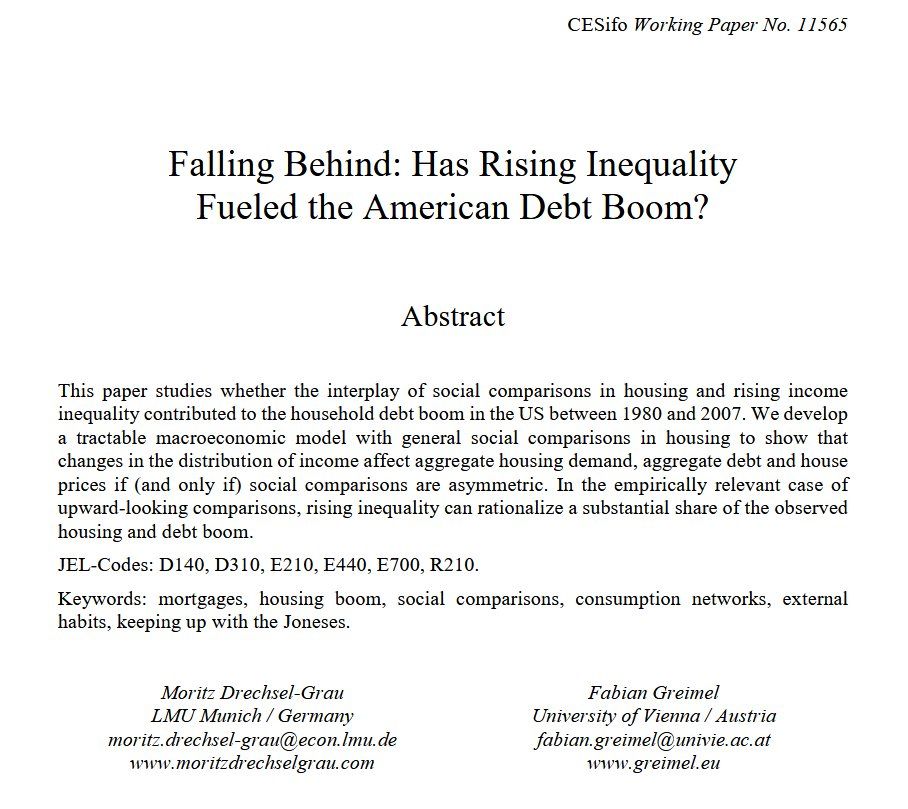Yes.
(For legal purposes I do not endorse this policy)

Yes.
(For legal purposes I do not endorse this policy)
Key findings:
* The West is especially meritocratic.
* What drives inequality? Globally, people believe luck matters more than merit.
bit.ly/41V6zJe

Key findings:
* The West is especially meritocratic.
* What drives inequality? Globally, people believe luck matters more than merit.
bit.ly/41V6zJe
This adds to a long and growing literature on inequality's externality effects.
Here are a few other macro examples (there are many others):



This adds to a long and growing literature on inequality's externality effects.
Here are a few other macro examples (there are many others):
The idea is that people increased their housing expenditure to keep up with their neighbors' increased spending, fueling unsustainable demand.

The idea is that people increased their housing expenditure to keep up with their neighbors' increased spending, fueling unsustainable demand.
An AI summary of their explanations when asked why:
"Economic inequality enables the wealthy to exert disproportionate influence on political processes, [...] undermining democracy."

An AI summary of their explanations when asked why:
"Economic inequality enables the wealthy to exert disproportionate influence on political processes, [...] undermining democracy."
I don't know the answer to the second question. In practice, what matters is the beliefs of a small group. Oppression or democracy, in the vein of Acemoglu and Robinson (2005)

I don't know the answer to the second question. In practice, what matters is the beliefs of a small group. Oppression or democracy, in the vein of Acemoglu and Robinson (2005)
Why? Here's the AI-generated summary of their open-ended explanations;

Why? Here's the AI-generated summary of their open-ended explanations;
Fehr et al (2018) shows that more unfair inequality leads to more money-burning in a controlled setting.

Fehr et al (2018) shows that more unfair inequality leads to more money-burning in a controlled setting.
"[...] increasing inequality has a destabilising effect; the disadvantaged group attacks the status quo."

"[...] increasing inequality has a destabilising effect; the disadvantaged group attacks the status quo."

Data from the IMF and World Inequality Lab.

Data from the IMF and World Inequality Lab.



